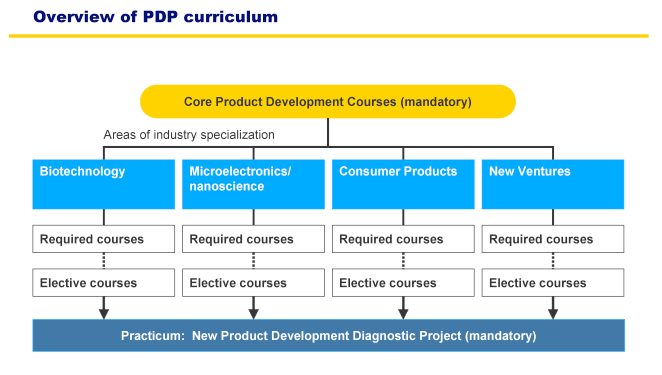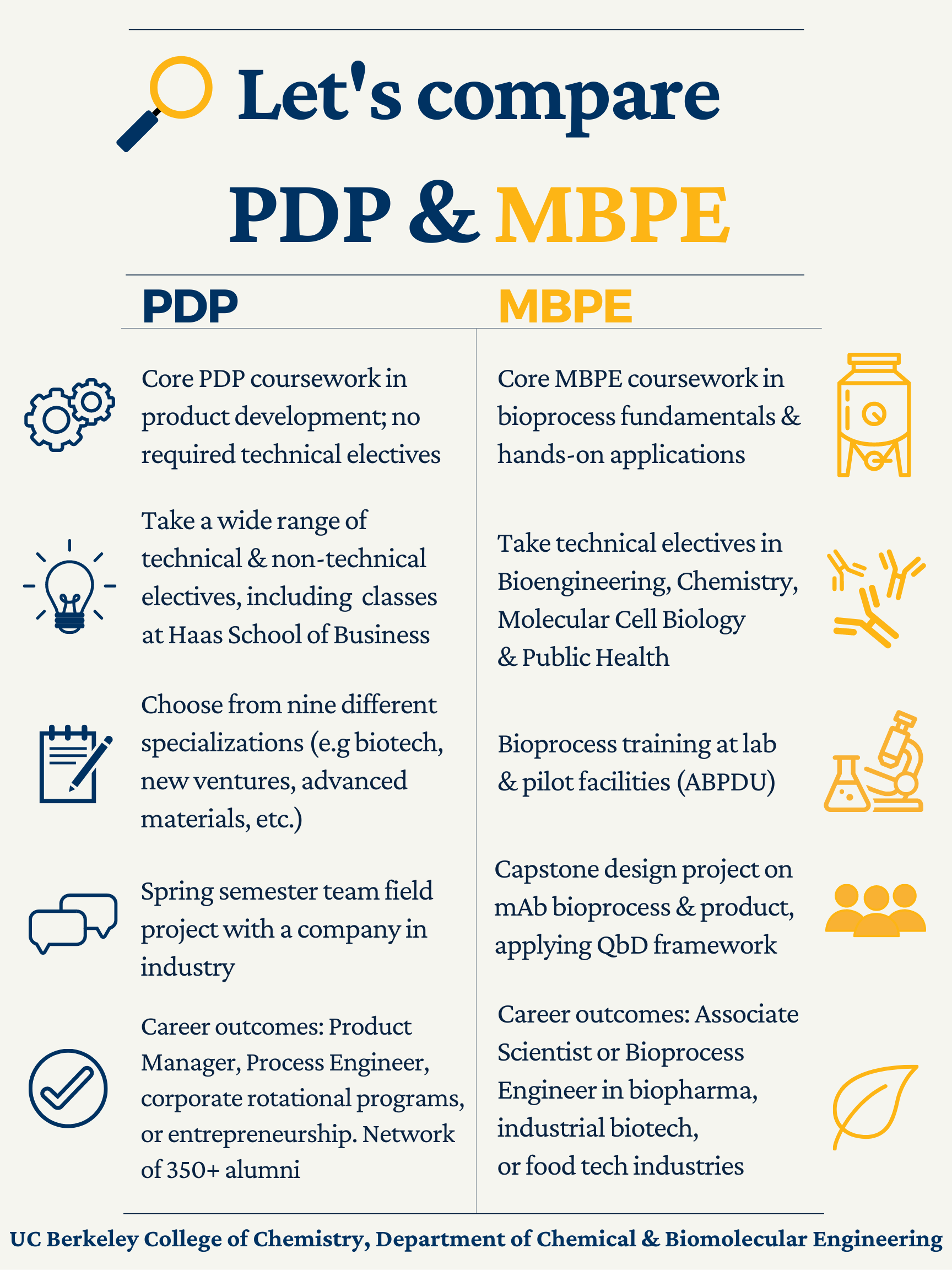The academic content of the program is the result of a careful design process using as input the results of extensive interviews with industry, faculty and students. Each component of the program has been thoroughly vetted with several representatives from each one of these stakeholder groups. As currently structured, the program will offer a one calendar year course of study that will result in the award of a Master's of Science Degree in Chemical Engineering with an emphasis in product development. The program will be composed of three basic elements each of which must be satisfactorily completed before graduation.

First, a set of two mandatory customized and comprehensive courses that provide a robust background in the fundamentals of new product development with an emphasis on the perspective of chemical engineering and related disciplines. In addition to traditional teaching methods, case studies, industry guest lecturers and special mini-projects will used in these core courses.
PDP does not require any technical courses, but students may choose to take them as electives if they choose.
New product development definition and overview
- Definition of “new product”
- Key trends and drivers in NPD
- Common barriers to good NPD performance
- Role of chemical engineering knowledge in the NPD challenge
Business/portfolio-level view of NPD
- Evaluating NPD performance
- Quantitative methods for NPD analysis
- Nature and role of intellectual property
- Strategic partnering and alliances
- NPD and the start-up venture
Product-level practices in NPD
- Stage-gate process
- Developing the business case
- Product specifications
- Design of experiments
- Product prototypes
- Design and formation of NPD work teams
Leadership and the NPD challenge
- Persuasive written and oral communications
- Multidisciplinary team dynamics
- Managing innovation and change
- Career management for the NPD professional
Advanced topics
- Creating a NPD strategy
- Development of breakthrough or disruptive products
- NPD entrepreneur — business development and deal structure
- Advanced computational methods for NPD (e.g., Monte Carlo, decision trees)
Second, a combination of required and elective courses focused in an area of industry specialization chosen by students before they enter the program.
Our market research suggests that the following specialization areas may be particularly attractive to students and industry:
Specializations
- Advanced Materials
- Alternative Energy/Sustainability
- Biotechnology - Drug Development
- Biotechnology - Medical Devices
- Consumer Products
- Microelectronics
- Manufactured Product Technology
- New Ventures
- Semiconductors
Review more information about our specializations.
Lastly, each student will be required to complete a challenging two-month field study assignment related to product development practice in an industrial setting.

Students will form teams and conduct a structured diagnostic assessment of some aspects of new product development activity within a participating company. Students will be trained in the second semester in the analytical methods needed to complete the field study requirement. We will make every attempt to place student teams in field assignments that match their choices of industry specialization. Students will be required to prepare and deliver written and oral final reports to the senior management of participating companies.
For an updated list of industry specializations and elective courses, please email: cbepdp@berkeley.edu
Graduation Requirements

The PDP program places equal emphasis on advanced course work in new product development principles, specific industry practices and the field study assignment. Successful completion of each of these elements is a prerequisite to graduation. The specific courses taken in the PDP program are selected in consultations between the student, the PDP Executive Director and a faculty adviser. Upon entrance to the program, students will be required to declare an industry area specialization so that an appropriate academic schedule can be constructed. Students must complete a minimum of 28 units with at least 18 of those units from letter-graded courses which include a minimum of 12 units in graduate-level (i.e., 200 series) courses.
Specific coursework to pursue an industry track will vary based on the individual student's interests and the availability of course offerings in a given year.







